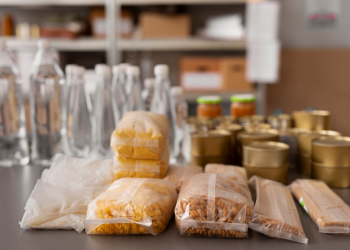Solvent Solutions in South Africa
Did you know that the availability of industrial solvents in South Africa can directly influence the nation’s productivity? While these chemicals may not make headlines, they are the invisible gears that keep countless industries running smoothly. From food processing to automotive production, paints, pharmaceuticals, textiles, and mining, solvents are part of the backbone of modern manufacturing. Without them, assembly lines would grind to a halt, products couldn’t be finished, and entire sectors could experience costly slowdowns.
But what happens when the supply of these critical chemicals is delayed—or worse, disrupted altogether?
In recent years, South Africa has faced growing challenges linked to the global chemical supply chain. International shipping delays caused by congested ports and container shortages have stretched lead times far beyond what many businesses can tolerate. Exchange rate volatility has added another layer of unpredictability, making imports more expensive or financially risky. Meanwhile, stricter import controls and compliance requirements often mean even longer waits before a shipment can be cleared. Together, these factors have exposed just how fragile the international supply chain for solvents can be.
This is where local distribution proves its worth. Domestic suppliers are able to adapt far more quickly to changing market conditions and demand spikes. Unlike international suppliers, who may take weeks—or even months—to fulfill orders, local distributors can deliver within days. This speed is more than just convenient; it’s essential. In industries where downtime costs millions of rand per day, having reliable, responsive solvent access is a competitive advantage.
Another crucial benefit of local sourcing is quality control. Long overseas journeys expose solvents to risks such as temperature fluctuations, mishandling, or even degradation of sensitive chemicals. By contrast, local distribution reduces these risks dramatically. Shorter supply chains make it easier to trace the origin of solvents, ensure they meet required standards, and comply with South Africa’s stringent safety and environmental regulations. For manufacturers under increasing pressure to demonstrate compliance and sustainability, this traceability is a significant asset.
Responsiveness is another area where local distributors shine. Imagine a manufacturing facility that suddenly needs to change solvents due to an updated regulation, a new customer requirement, or a process change. Waiting weeks for an international supplier to deliver alternatives simply isn’t viable. A local distributor, however, can step in immediately—offering guidance, technical advice, and swift delivery of suitable substitutes. This agility keeps production lines running, avoids costly interruptions, and ensures businesses remain compliant.
The impact of solvent supply goes far beyond individual factories. When a single manufacturer experiences delays, the ripple effect spreads quickly through the wider economy. Products arrive late to retailers, exporters miss deadlines, and service providers further down the chain feel the pressure. In contrast, when local solvent distribution is strong, industries operate more smoothly, supporting overall economic growth and stability.
In short, while solvents may not be visible to the average consumer, their reliable supply underpins South Africa’s industrial performance. By investing in robust domestic distribution networks, businesses not only safeguard their own operations but also strengthen the resilience of the nation’s economy. Local distribution isn’t just a convenience—it’s a quiet but vital driver of productivity in South Africa.









